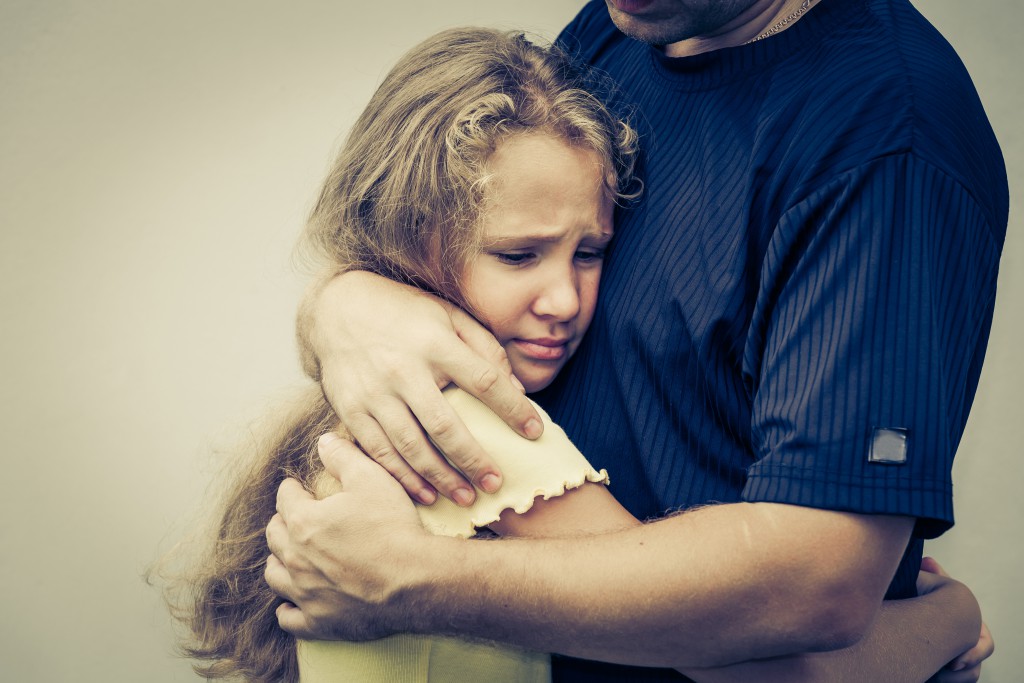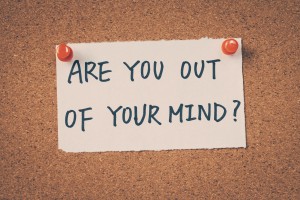If Part One of my story leads you to say “This girl needs to chill out”, I hear you, but it’s not in my veins to chill out. Why? Well since that crunch moment, I have done an in-depth post-mortem of my past, to trace the roots of my breakdown.
My illness has been bubbling away inside me for awhile. “Constant worrier”, “highly strung”, “wound up” “clumsy” were the ways family described me when I was younger. But then in 2008, I was diagnosed with general anxiety disorder (GAD) and so I realised it wasn’t just a quirk of mine, but a crippling condition because my level of worrying wasn’t/isn’t quite normal. But one obvious childhood event would take my condition to pathological heights: losing my mum to cancer at age nine.
Childhood Grief
I still have vivid memories of my mother’s last months; hearing her throw up after chemo, reading to her as she lay in a morphine-infused state, my dad feeding her dinner, the moment he told us that she wasn’t going to make it, then 2 weeks later waking me up in the night to say she had died, my aunt’s hand stroking my hair as I cried in bed. Such moments still pull at my heart strings. I felt my mother’s suffering, my dad’s stress and pain and the shared grief of my sisters. The emotions are raw regardless of how much time has passed by.
However at the time, I remember feeling OK. When the Macmillan nurse told us how sorry she was, I remember smiling as it was exciting to see so many people in our house. I hate myself for having felt that way! But I was really too young to know what it meant. What I know now is that losing my mum, a fundamental figure in a girl’s life caused a seismic shift in my subconscious. I remember showing classic OCD (Obsessive Compulsive Disorder) and mutism symptoms. I used to worry about where my dad was (check he was still awake/alive each morning), and try to be good as possible so as not to upset him or for fear he would leave.
I still have vivid memories of my mother’s last months; hearing her throw up after chemo, reading to her as she lay in a morphine-infused state, my dad feeding her dinner, the moment he told us that she wasn’t going to make it, then 2 weeks later waking me up in the night to say she had died, my aunt’s hand stroking my hair as I cried in bed.
I now understand that was my way to control the chaos that was going on; no mother, a very stressed out dad and yet a life that had to be lived as if nothing had happened. As adolescence hit, I had no-one to guide me through bra fittings time of the month and boys. My dad isn’t the most touchy feely person. He tried to be supportive as he could but I guess it was too much to ask. He had lost a lot of weight and buried his grief in earning enough money to feed us and maintain a semblance of a normal life.
Parental Rejection
When I look back at the little me, I saw the seeds of sadness only just taking root. But it really wouldn’t come to the surface of my brain until I was 14 and constantly fighting with my dad. I didn’t get into a school and he branded me a disappointment. He constantly eroded my confidence with comparisons to my sisters. I felt he didn’t get me and this I am sure is where my critical inner voice came to life.
Why this matters, my therapist tells me, is that when your surviving parent, who you cling to as a kid because they are all you have, now tells you that he thinks you’re a failure, you don’t try hard enough and you are inferior, it is the ultimate form of rejection. All the insecurities associated with abandonment come to life and so come 16 and 17 in the throes of GCSEs and A’Levels I felt so different to my family. And that is depression. It works on a divide and conquer principle. It isolates you and then breaks you down.
I realise past events have skewed the way I see myself. I believe I am one person, (different, stupid, inferior, clumsy, lazy, cowardly, weird, loner, ugly) when in fact I am, according to others’ opinions, confident, brave, bright, creative, quirky, attractive, friendly, bubbly, energetic. I bet anything that this is the same for a lot of people.
The truth is, no matter what the facts are, your own perception of yourself is what truly matters. And if you have learnt from a young age that the most important people in your life leave you, you are told you are a disappointment and failure then those are pretty tough lessons to unlearn. In fact the messages have shaped the present me. Of course some friends do not understand my grief. After all when someone is gone for 23 years, do you grieve for them anymore? Yes. You. Do.
The truth is, no matter what the facts are, your own perception of yourself is what truly matters. And if you have learnt from a young age that the most important people in your life leave you, you are told you are a disappointment and failure then those are pretty tough lessons to unlearn.
Luckily more is being done to safeguard children who undergo such traumas. Back then there was hardly any outlet save for my primary school teacher. I think if I had dealt with my grief back in 1993 then my emotional set up would have been different and I could face things better. Not that I think I’ve done a bad job of growing up. On the outside you may think I’m doing OK. But that’s just it. Depression and anxiety are good at hoodwinking you. So much so that people see you being sad as a weakness or a lack of resilience.
That takes me to Part 3: Suffering the Stigma…







No Comments